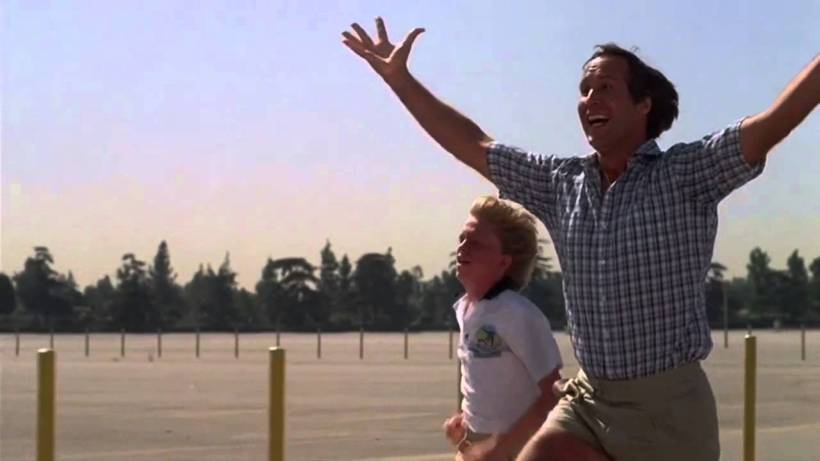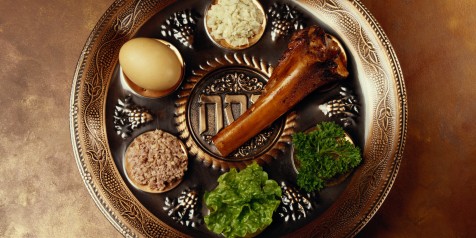
—
In Exodus, we read the Lord’s instructions to Moses and Aaron about celebrating the Passover. The ceremony involves a sacrifice and a meal. The quintessence of the ritual is: Being in flight, leaving, moving. No time for the bread to rise, because this is a meal for the road. The angel of death will pass over our hovels, marked by the blood of the lamb. Then we will leave. We will pass over the Red Sea as if it were dry land, en route to the country God has given us.
This ritual sense of pilgrimage has passed into the sacrificial meal of the new and eternal covenant, the Holy Mass. The offering of the Body and Precious Blood of the incarnate divine Lamb saves us from slavery to sin and death. We consume Him under the appearance of unleavened bread as food for our journey. We keep our sandals on our feet and our staffs in hand. We keep our loins girt. What does that mean? It means now is no time for lollygagging, for malingering on the sofa. This is not our home. We have a destination to reach.
But wait a minute. Don’t we live here? Don’t we have duties, friends and loved ones, worthy tasks to accomplish here and now? And isn’t our parish-church building our ‘church home?’ Shouldn’t we especially love our parish church, as a home for our souls and spirits?
Good question. To understand this properly, let’s consider how Benedictine monks promise never to leave the monastery without the abbot’s permission. Talk about the opposite of “on the move.” The ancient Israelites celebrating the first Passover seem to occupy the opposite end of a spectrum from the monk confined for life to his cloister.
Except: the two share the same profound spiritual awareness. God has a home for us, and it is not here. No one has loins more securely girt for the great journey than a cloistered monk who lives for fifty or sixty years on one little plot of ground without going anywhere other than the doctor’s office.
 Our parish church building counts as a bona fide “home” because it represents heaven. It represents the home we truly have, which is not here on earth.
Our parish church building counts as a bona fide “home” because it represents heaven. It represents the home we truly have, which is not here on earth.
Some people fantasize endlessly about vacationing in Disneyland, or Wally World, or the Wizarding World of Harry Potter. I’ll admit that I myself have a US map on my wall, marked with all the Civil-War sites I have visited. And my next traveling plan is to visit sites from the Mexican-American War. We’re not cloistered monks, after all; we’re allowed to take vacations sometimes.
But no one can take a vacation from the fact that this world will never make us truly happy, and someday we will all die. Someday soon. So we find happiness by calmly and patiently living out our lives on the little plot of land we occupy, frequenting the parish church, celebrating the holy Passover sacrifice—the Mass—hoping that today the Lord will return in all His glory.